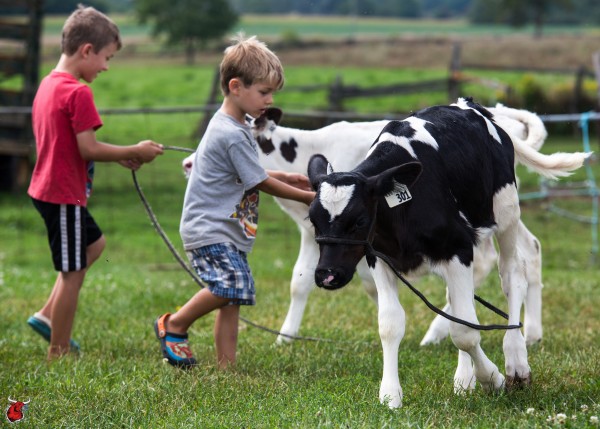 CHILDREN who grow up on dairy farms are protected against asthma and allergies through their exposure to farm dust, research has found.
CHILDREN who grow up on dairy farms are protected against asthma and allergies through their exposure to farm dust, research has found.
The researchers are now aiming to tease out the part of the microbes in dairy farm air that induce protection against hayfever and asthma, and “bottle” this for children growing up in the city.
Researchers from Ghent University in Belgium have found that the bacteria in cow manure and hay cause a temporary inflammation of the lungs when inhaled by children living on dairy farms.
Professor Hamida Hammad, presenting her findings at the International Congress of Immunology in Melbourne yesterday, said this exposure affected structural cells in the lungs and increased expression of a protein called A20, which desensitised the immune system and protected against allergies and asthma.
“We believe that children before the age of two need to be exposed to certain environmental triggers, like farm dust or bugs, and this will induce the increased expression of the protein in the structural cells of the lungs,” Prof Hammad said.
“If they fail to do this, those children will develop asthma.
“But some children on these farms still develop allergic asthma. We found the A20 is not functioning normally.”
The findings add to the growing evidence of allergies being caused by the “hygiene hypothesis”.
This is when the health benefits of urbanisation — such as clean food, water and less disease — are leaving a child’s immune system without vital exposure to bacteria to avoid developing food and respiratory allergies.
The group replicated the findings with experiments in mice, injecting them with molecules of the same type of bacteria found in cow manure and hay. These mice were also protected from developing asthma when exposed to dust mites.
Prof Hammad said the findings paved the way for other treatment options to pursue as a preventive to the most common allergies in childhood.
“We don’t know what in farm dust is triggering this protection,” she said.
“This is what we are investigating, in the hope it can be used by people living in cities.”
Source: Herald Sun









